In a recent leadership session facilitated by CP Tham, the focus turned to one of the most underrated yet powerful forms of leadership: referent power. Rather than relying on position, authority, or technical expertise, referent power is earned through trust, connection, and genuine relationships.
During the session, CP Tham challenged leaders to reflect on how they’re remembered—not just by what they’ve done, but by how they’ve made others feel. Here are the key insights from his message and what they mean for leadership in today’s workplace.
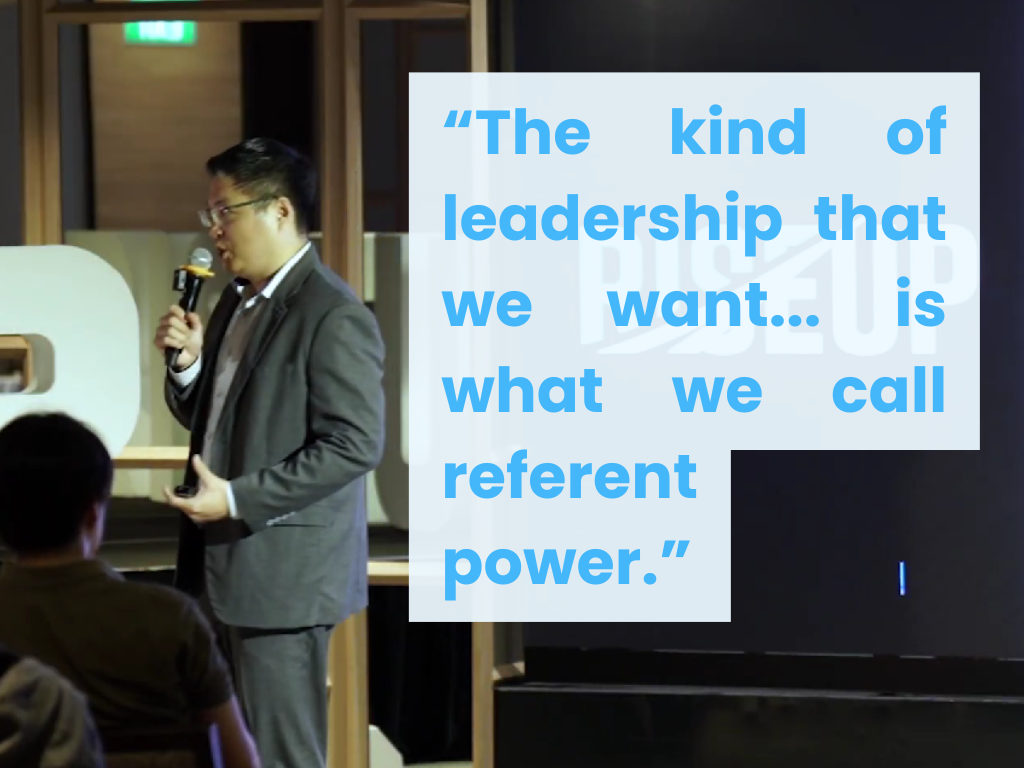
“The kind of leadership that we want... is what we call referent power.”
Referent power is not based on job titles. It’s based on who you are and how others experience you.
In this opening statement, CP Tham sets the tone: great leadership isn’t reserved for executives. Referent power is for everyone—from team leads to new managers. It’s the ability to influence others through respect, admiration, and emotional connection.
People follow referent leaders because they want to, not because they have to.
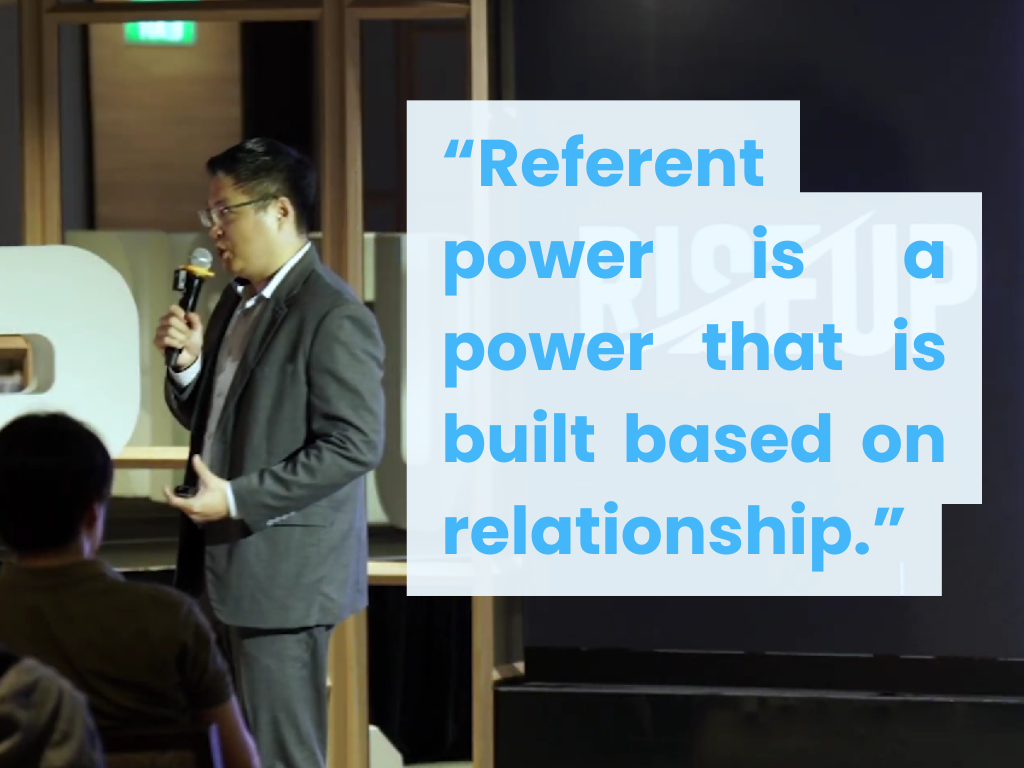
“Referent power is a power that is built based on relationship.”
This quote brings us to the heart of it: relationship over rank.
Leaders with referent power build influence through shared experiences, reliability, empathy, and consistency. They invest in their teams, care about people’s growth, and create trust—not through authority, but through humanity.
This kind of power can’t be assigned. It’s earned over time and anchored in authentic connection.
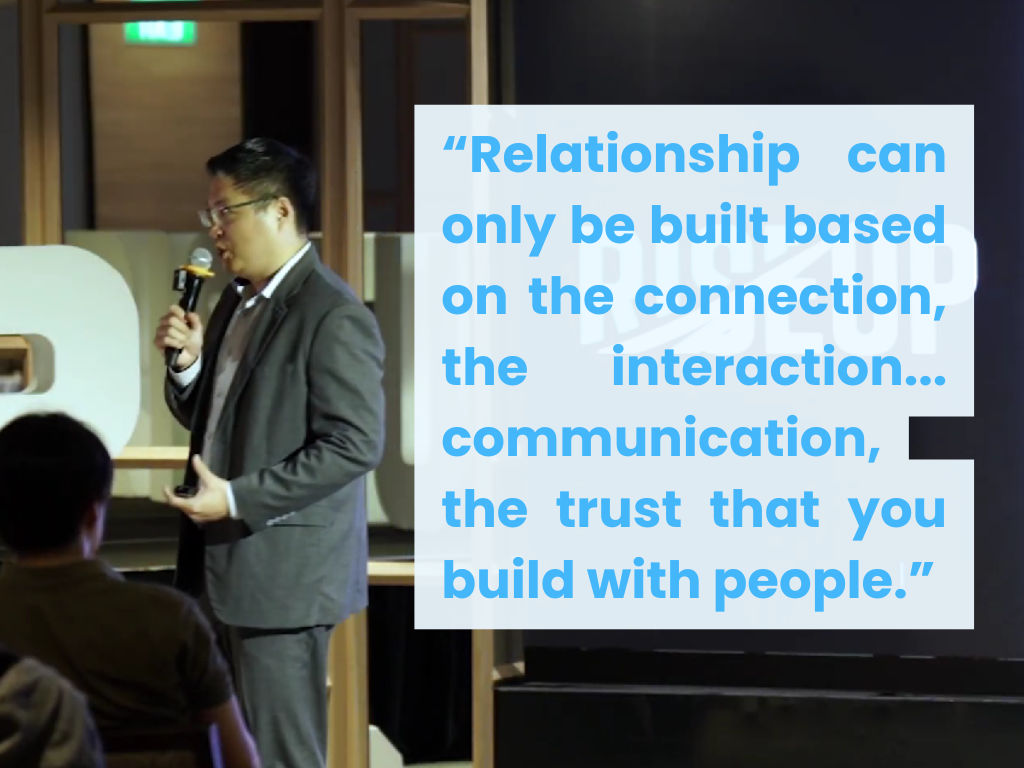
“Relationship can only be built based on the connection, the interaction... communication, the trust that you build with people.”
CP Tham explains that relationships—and therefore referent power—are not built on grand gestures, but on day-to-day behaviours:
- Listening with intent
- Following through on promises
- Giving feedback respectfully
- Being present in moments that matter
These micro-interactions build macro-trust. And over time, they form the foundation of powerful, referent-based leadership.
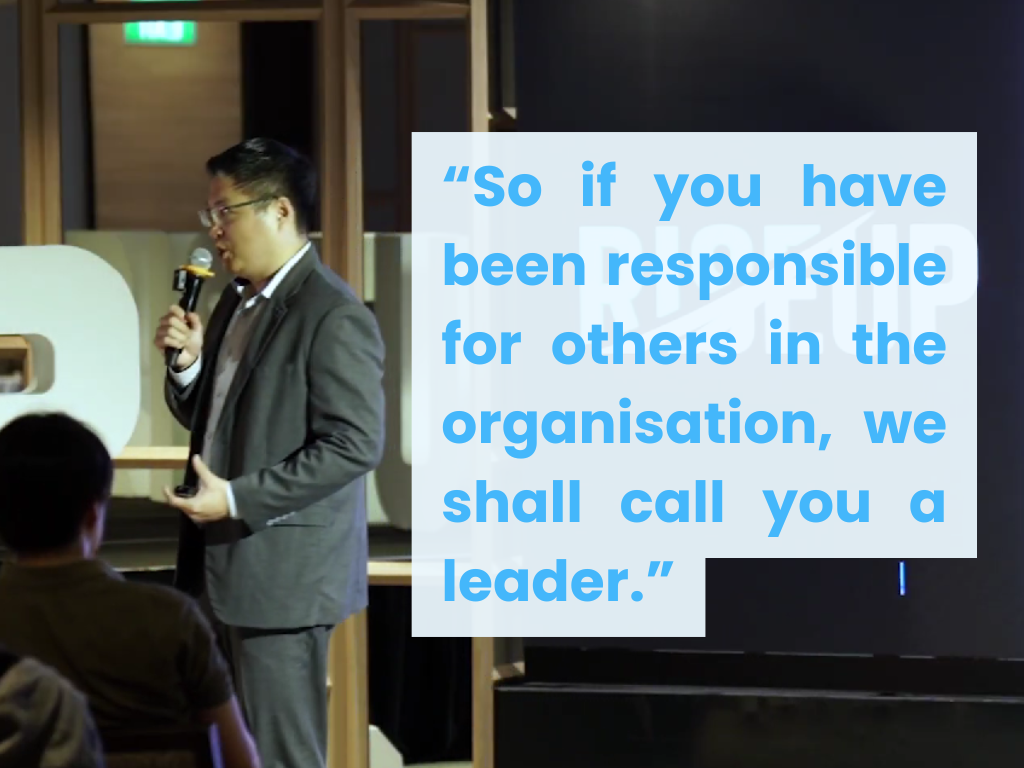
“So if you have been responsible for others in the organisation, we shall call you a leader.”
Leadership isn’t about having a title—it’s about having responsibility for others.
CP Tham invites us to move beyond hierarchy. Whether you manage a team, lead a project, or mentor a peer, the moment you’re responsible for another person’s growth, you’re in a position to lead—and to lead with referent power.
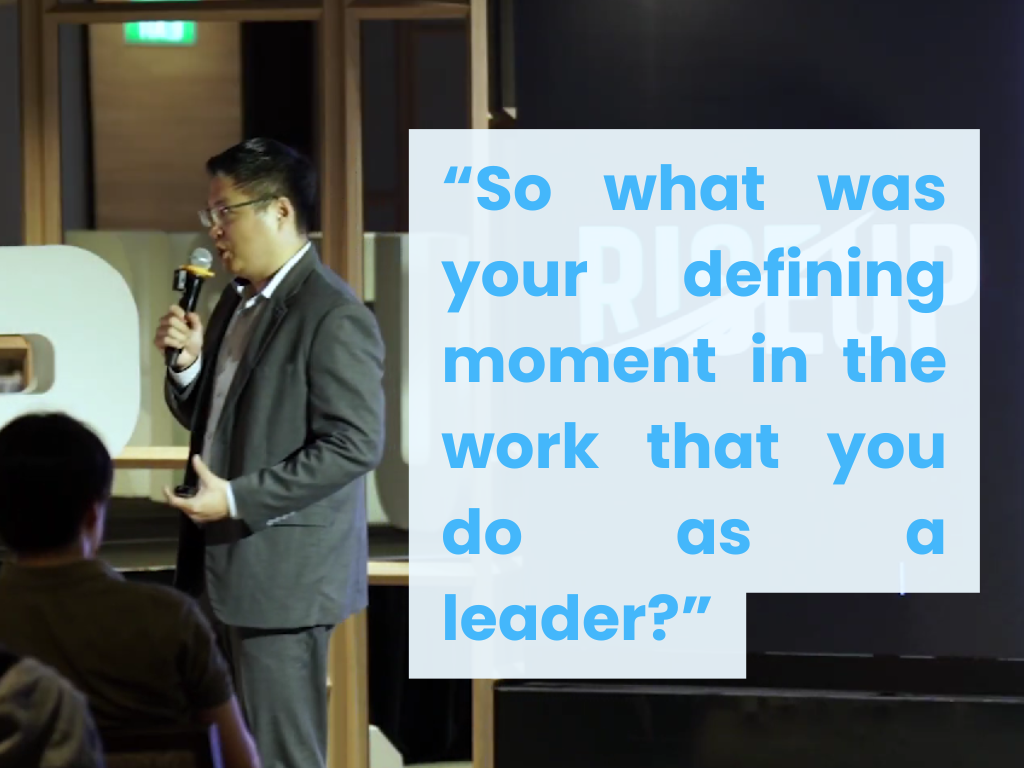
“So what was your defining moment in the work that you do as a leader?”
Every leader has a moment when they realize: this is bigger than me.
It may come during a conflict, a crisis, or a quiet breakthrough. CP Tham’s question encourages reflection: when did you stop managing tasks and start leading people? That moment is where referent power often begins.
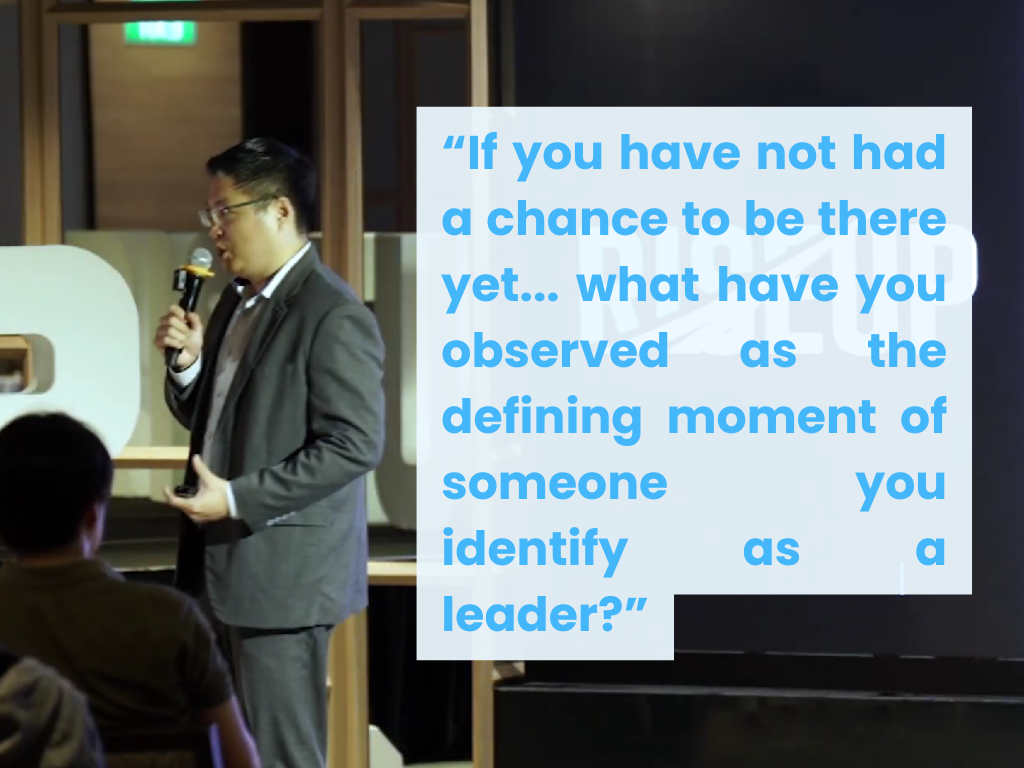
“If you have not had a chance to be there yet... what have you observed as the defining moment of someone you identify as a leader?”
Even if you haven’t stepped into a leadership role yet, CP Tham reminds us we can learn by observing.
Think of someone you admire at work. What did they do that made you trust and respect them? What behaviours or attitudes drew others in? These are examples of referent power in action—and inspiration for how to build your own.
Curious about how to build referent power yourself? Want to better understand what it is and how it works?
Let’s explore everything you need to know in this simple, beginner-friendly guide.

What Is Referent Power?
Referent power is the ability to influence others because they admire, trust, or respect you—not because you have authority over them.
It’s one of the five bases of power in leadership theory (alongside coercive, reward, legitimate, and expert power). But unlike those others, referent power comes from who you are, not the role you hold.
Why Does Referent Power Matter in the Workplace?
Because people follow people they believe in.
Referent power:
- Builds stronger relationships
- Inspires intrinsic motivation
- Reduces turnover and disengagement
- Fosters a culture of trust and collaboration
Leaders with referent power don’t just direct people—they draw them in. This makes teams more resilient, adaptable, and connected.
What Does Referent Power Look Like in Action?
Here are a few examples:
- A senior leader shows up to listen during tough team meetings—without interrupting.
- A project manager celebrates team wins and gives credit freely.
- A colleague speaks up for someone in a difficult moment and gains quiet respect.
- A mentor consistently checks in and helps others grow.
These people lead without needing to demand authority. That’s referent power at work.
How Can You Build Referent Power?
Start small, and stay consistent. Here’s how:
- Be authentic – Show up as your real self. People respect honesty.
- Build trust – Do what you say you will. Be reliable.
- Invest in others – Listen, support, and challenge them to grow.
- Stay calm under pressure – Emotional steadiness earns confidence.
- Lead by example – Be the kind of teammate you’d want to follow.
Referent power takes time, but it’s worth it. Once earned, it stays with you—even when your role changes.
Common Misconceptions
- It’s just about being liked.
Not true. It’s about being respected—not just popular. - It’s for extroverts only.
No. Introverts often lead powerfully through deep connection and quiet integrity. - You need to be in a leadership role first.
Referent power can be developed by anyone, at any level, in any team.
Final Thought
CP Tham’s message is clear: leadership isn’t about controlling others—it’s about connecting with them.
Referent power is quiet, steady, and deeply human. It doesn’t require a title, but it earns real influence. And in workplaces where trust and connection matter more than ever, it may just be the most powerful form of leadership you can develop.
If you want to lead well, start with relationships. Start with referent power.
Frequently Asked Questions
1. What is referent power in leadership?
Referent power is the ability to influence others through trust, respect, and personal connection—rather than authority or position.
2. Why is referent power important in modern organisations?
Because it builds loyalty, psychological safety, and authentic engagement—leading to better teamwork and long-term performance.
3. How is referent power different from other types of power?
Yes. Anyone can build referent power by consistently showing integrity, empathy, and trustworthiness in how they lead and collaborate.
4. Can referent power be developed?
Unlike legitimate (title-based) or coercive (fear-based) power, referent power is based on who you are, not what you control.
5. What are signs that someone has referent power?
People voluntarily follow their lead, seek their input, open up to them, and speak of them with respect—even when they’re not the boss.

A trailblazer in humanising leadership and building high-resilience teams. As a former United Nations Peacekeeper, he leverages his high-stakes experience to redefine leadership dynamics. With a career distinguished by numerous accolades, Joseph now helps organizations thrive through a human-centric approach, enhancing performance, productivity, and workplace culture.







